In the College of Business, students learn that ethics and profit go hand in hand
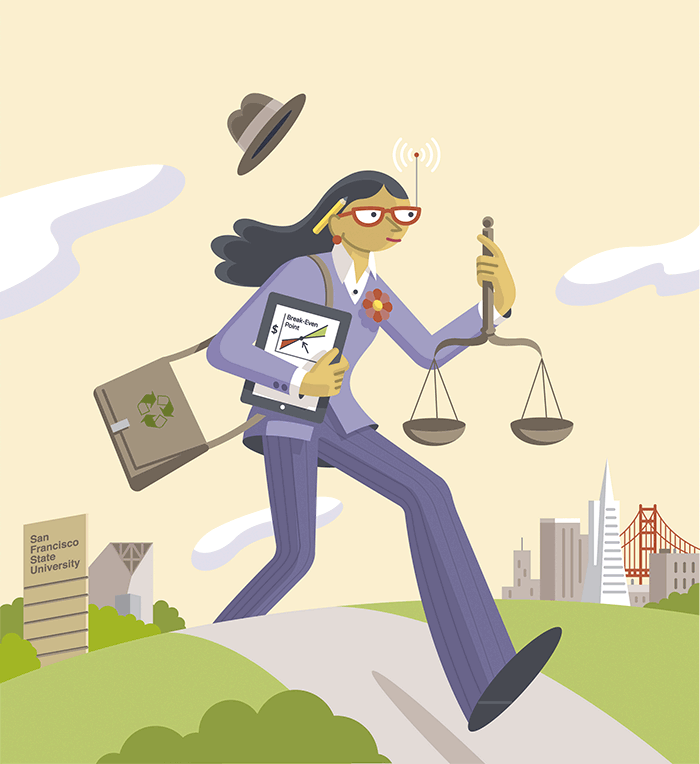
Illustration by Greg Clarke
When Katie Parker(MSBA, ’12) moved across the country to pursue her MBA at SF State’s College of Business (CoB), she had no idea the school was nationally ranked for its focus on sustainability — nor, at the time, would she have cared. “I had never heard of ‘sustainability’ before,” says Parker, who had majored in math and statistics in college and begun her career as an analyst for an insurance company. She simply wanted to continue working with numbers, figured that the credential would lead to a higher-paying job in the same field and chose SF State for its great location and its program in decision science, which she defines as supporting management decision-making with numbers. Everything worked out despite her initial ignorance. “It ended up being the best decision ever because I gained a soul in the world of business,” says Parker, who now works as a senior supply chain analyst at Emeryville-based Clif Bar & Co., known for organic agriculture and green-friendly packaging, among other ethical commitments. At the College of Business, “I learned there’s a better way to do business — and that there are companies out there you can feel better working for.”
The idea that sustainability, corporate social responsibility and ethics can and should go hand in hand with a business’s profit-making goals is a shared tenet at the College of Business, says professor Tom Thomas, chair of the Management Department. Recent high-profile business scandals — from Volkswagen emissions-test cheating to Wells Fargo Bank’s fake-accounts fraud — highlight the relevance of the school’s approach. Not only is corporate America in need of business leaders educated with ethics in mind, it can’t afford to do business without them.
“It ended up being the best decision ever because I gained a soul in the world of business.”
— KATIE PARKER, SENIOR SUPPLY CHAIN ANALYST, CLIF BAR & CO.
Yet this attitude remains rare among business schools even as more and more of them launch ethics programs, says Thomas, who has also taught at the business schools of University of California, Berkeley and the University of Washington. In particular, he says, schools dominated by faculty in finance tend to be guided by the staunch free market ideologies of the highly influential economists of the “Chicago School.” Two Nobel laureates from the University of Chicago have had an especially big effect on business schools’ orientation of indifference or opposition to community-centric values: Gary Becker, who assumed that people’s altruism is merely a masked form of self-interest, and Milton Friedman, who famously asserted that corporate social responsibility is fine as long as it increases profit in the long run — “but if it doesn’t, then you’re stealing from shareholders,” as Thomas sums up Friedman’s doctrine.
Even CoB students must prepare for a world of shareholder lawsuits and the need to stay profitable to survive. To that end, they learn the quantitative tools to make a sound business case to employers for investing in sustainable practices. One such tool is breakeven analysis, says professor Susan Cholette, chair of the CoB’s Decision Sciences Department. Breakeven analysis shows that a green-friendly decision doesn’t necessarily cost more. A classic example Cholette teaches is hybrid cars, which have a higher up-front cost than conventional cars. “At what point does it make sense to switch to a hybrid from a conventional car?” Cholette asks. “Well, if you drive a lot, then at some point the fact that you’ll be paying less for gas will offset the cost.” By showing when that point occurs, breakeven analysis helps managers make sensible choices on similar issues, such as when it makes business sense to replace electricity with solar-generated power. “At some point there’ll be a payback, and that’s often sooner than people realize,” says Cholette.
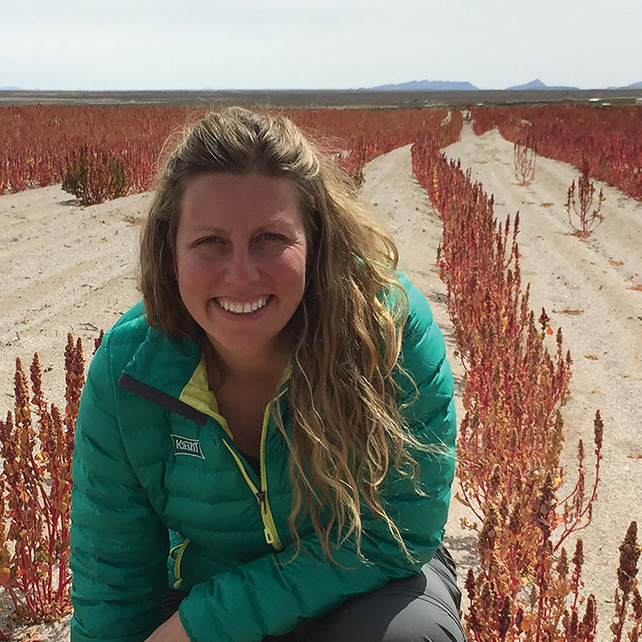
“More and more companies are realizing that to continue to grow into the future, they have to deliver a different type of social and environmental value to society.”
— PALOMA LOPEZ, GLOBAL SUSTAINABILITY DIRECTOR, KELLOGG CO.
There’s a lot companies can do to improve ethics while remaining profitable, believes Sean Ansett (MSBA, ’98), whose career in the apparel industry was inspired by an SF State class project on sweatshops in the footwear industry. Ansett co-founded a for-profit social enterprise, FairPhone, which aims to create smartphones that do “minimal harm to people and planet.” For example, because of the product’s modular design — made up of seven pieces that can be taken apart with a Phillips screwdriver — customers can keep their phone up-to-date by switching out specific components instead of replacing the whole device, giving the phone five to six years of useful life. “We deliberately chose not to be a not-for-profit,” Ansett says, “to demonstrate that you can create a viable model with this product.”
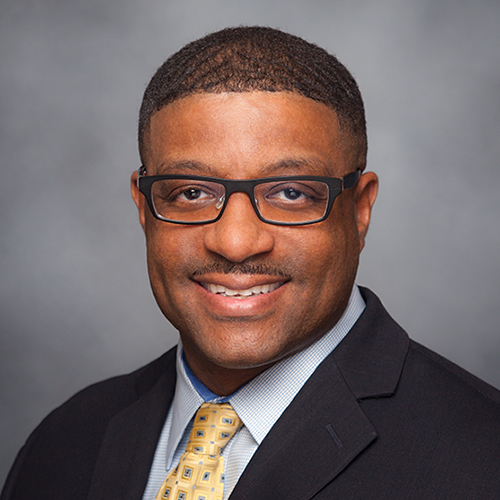
Okorie Ramsey(B.A., ’92), says that the CoB classes he took in ethics were as foundational to his career as the courses in speech and business writing. In his role as a vice president and finance compliance officer at Kaiser Permanente, the health care giant, Ramsey investigates bad acts (such as backdating documents and taking kickbacks from vendors) and determines corrective action; he also manages Kaiser’s compliance with the Sarbanes–Oxley Act (SOX), the 2002 law enacted in response to the accounting-fraud scandals at Enron and WorldCom. Although SOX was designed mainly to protect investors in public companies, making the privately owned Kaiser exempt from most SOX provisions, Kaiser elected to comply nonetheless. SOX, Ramsey says, “creates greater accountability and helps protect our brand.”
That is one of the ideas Ramsey shared as a guest speaker in a class taught by Denise Kleinrichert, professor of management and ethics, who notes that SF State is one of only two universities in the nation to offer a certificate pro- gram in ethics and compliance. “A company will not stay viable and profitable if they continue to have missteps,” says Kleinrichert, who also directs the Center for Ethical and Sustainable Business. “There are huge costs of being unethical and illegal,” she explains, pointing to the myriad troubles recently facing Wells Fargo Bank, from legal bills to consumer ill will.
It’s the sort of argument that even devotees of the Chicago School would buy — but embracing ethics can be more than a way to stay out of trouble or to look good to prospective employees and customers. Ethical business is a must for a company to remain resilient for the long haul, says Paloma Lopez(MSBA, ’98), who works as global sustainability director at the Kellogg Co., the multinational food company best known for its breakfast cereals. “More and more companies are realizing that to continue to grow into the future, they have to deliver a different type of social and environmental value to society,” she says. In the food industry in particular, in an age in which climate change and booming populations threaten the world’s supply of some ingredients, developing more sustainable practices is absolutely essential for standing the test of time.
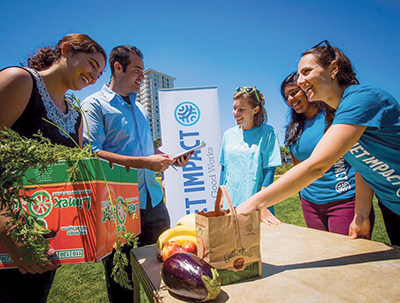
In recent years, “Big Food” companies, which get many of their raw materials from poorer nations, have come under fire for depleting natural resources, breaching workers’ rights and similar offenses — perhaps most publicly through the anti-poverty confederation Oxfam International’s “Behind the Brands” campaign. According to Oxfam’s scorecard, Kellogg still has a long way to go. But as Lopez points out, Kellogg was the scorecard’s most improved company in 2015.
Lopez, a native of Spain whose job has taken her to many countries in Europe and the Americas, is one of several alums to connect the dots between ethics and SF State’s highly diverse student body. Sustainability is only possible through collaboration with locals, such as the farmers supplying some of Kellogg’s ingredients, she says, and successful collaboration requires understanding the cultural context of the people you’re working with. “What is right and what is wrong sometimes depends on the culture,” Lopez says. “You can’t do sustainability in the U.S. the way you do sustainability in Argentina or in the Philippines.” SF State’s curriculum and case studies heightened her sensitivity to these issues, she adds.
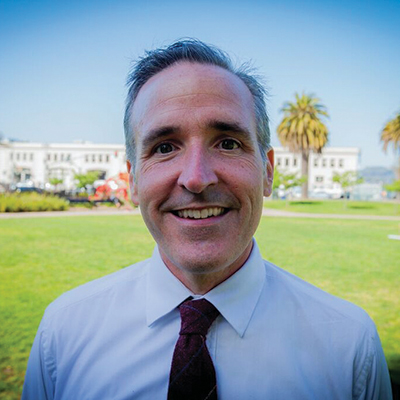
That’s been the experience of Michael Hamm(B.A., ’09), a current MSBA student who became interested in the ethics of food while working as a barista for Blue Bottle Coffee, the Oakland-based roaster. Hamm returned to school to acquire the business training needed to rise within the growing company and chose SF State largely for its ethnic and socioeconomic diversity. “If you’re exposed to people of diverse backgrounds, you tend to have empathy for their circumstances and to consider how the actions you take would affect those other people,” says Hamm, who serves as co-president of the University’s chapter of Net Impact, an organization that coordinates and sponsors events around environmental sustainability and social impact.
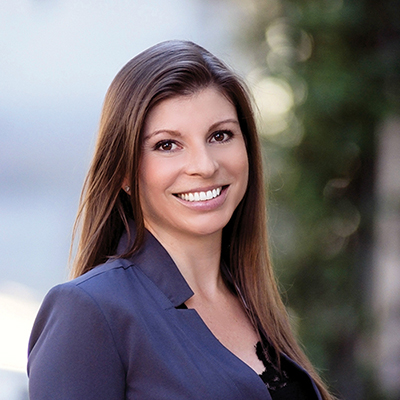
Listening to the views of a variety of people continues to help Laurel Peacock(MSBA, ’10) in her job as a senior sustainability manager at integrated-power company NRG Energy, which generates electricity from power sources, including wind, solar and coal. Peacock, who also teaches a graduate-level course at the CoB, says that in a field as polarizing as the energy sector, “the importance of working with all stakeholders to co-create solutions” has been a valuable lesson from her education at SF State. At her company, “we all have to work together toward a common goal,” she points out. “We all want the company to endure into the future — and that is the definition of sustainability.”
RELATED: Doing Good Is Good Business
By MARINA KRAKOVSKY